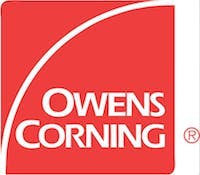ARCHITECTURE GIANTS: 21 practice management innovations from architecture Giants
Design firms have gone all out with management innovations in the last year. Check out which ones might work for your firm.
1. Hone your client relationships. TK Architects creates annual relationship plans for current and prospective clients. Plans cover marketing opportunities, improvements to the firm’s service and delivery, and face-to-face “touch points” in the office or at industry events. Project managers must contact major clients every week. TK audits completed projects to gauge client satisfaction.
2. Help clients make tough decisions. BLDD Architects’ Qualified Learning Environment Outcomes software helps K-12 clients take the emotion out of decisions related to their facilities. QLEO projects the first costs and life cycle costs (and benefits) of numerous scenarios and compares the data to how well the district’s buildings perform. QLEO helped the St. Joseph (Mo.) SD prove that a plan to retire six schools and build three new ones was superior to a competing plan—from voters, no less—to renovate the six buildings.
3. Beef up your revenue forecasting. HMC Architects created an advanced revenue forecasting tool to provide a detailed view of the firm’s backlog versus budgeted revenues and staffing capacity. Projects are weighted based on schedule and the probability of being won.
TOP ARCHITECTURE FIRMS
2014 Architecture Revenue ($)
1 Gensler $1,041,280,000
2 Perkins+Will $413,070,000
3 Kohn Pedersen Fox Associates $223,188,000
4 Perkins Eastman $182,900,000
5 NBBJ $163,000,000
6 ZGF Architects $131,689,176
7 Populous $122,000,000
8 Corgan $111,250,000
9 Adrian Smith + Gordon Gill Architecture $81,198,766
10 VOA Associates $70,331,475
SEE FULL LIST
TOP ARCHITECTURE/ENGINEERING FIRMS
1 Stantec $477,440,639
2 HOK $416,549,000
3 Callison RTKL $402,411,373
4 Skidmore, Owings & Merrill $356,060,910
5 HDR $331,450,000
6 HKS $280,308,323
7 SmithGroupJJR $197,158,405
8 CannonDesign $178,000,000
9 EYP $144,727,249
10 DLR Group $130,000,000
SEE FULL LIST
ARCHITECTURE GIANTS SPONSORED BY:
4. Refine your target markets. GWWO is drilling down on its core markets—museums, visitor and nature centers, and education facilities—by type, size, location, and conformance to the firm’s five-year goals. It doubled its business development staff, to four, to pursue projects that best fit these parameters.
5. Start your own firm (and immediately land a mega-project). Dan Meis, FAIA, formerly of NBBJ Sports and Entertainment, establishedMEIS Studio a year ago and quickly got the green light on the $400 million Stadio Della Roma, a 52,000-seat stadium for Rome’s AS Roma soccer team, with accompanying mixed-use retail.
6. Don’t be afraid to fight City Hall. SRG Partnership (designer), Equilibrium Engineers (SE), and Lease Crutcher Lewis (GC) had to prove to Portland officials that cross-laminated timber could safely meet the state structural code for the cantilevered roof of the new Oregon Zoo Elephant Lands Plaza Visitors Center.
7. Open a new office. In early 2014 New York–based FXFOWLE moved from a shared office in the District of Columbia to its own space, with 10 professionals. The office has since landed a handful of projects in the Mid-Atlantic region.
8. Add a new service. LPA Inc. added lighting design to its armamentarium.
9. Enhance an existing service. Retail designerapi(+) sharpened its focus on food retailing and foodservice design. The move has produced new commissions.
10. Hire ex-CEOs to bring in business. Westlake Reed Leskosky grabbed a major orchestra’s executive director, an art museum head, and the former CEO of Cleveland Clinic’s flagship Hillcrest Hospital (Jeff Leimgruber) to shake the trees for high-profile projects in the firm’s target sectors.
11. Make your staff the firm’s “Brand Ambassadors.” KSQ Architects’ “Brand Ambassadors” are 25 staffers who contribute to the firm’s blog and community outreach projects. Social media sharing by staff has doubled. KSQ provides sales training to its professionals: in the last year, they generated work worth more than $10 million.
12. Put a spin on your firm’s birthday. To add zing to its Golden Jubilee,Legat Architects is encouraging staff to conduct pro bono community-based design charrettes. The firm also sponsored an “Art of Architecture” exhibit in its hometown of Waukegan, Ill.
13. Issue your firm’s own “Declaration of Innovation.” Little issued such a document setting forth 20 initiatives designed to harness the firm’s diversity. Little’s “Constitution” gives its 326 employees the freedom to work throughout the organization.
14. Punch up your punch list system. RBB Architects mobilized a punch-listing team of 14 to meet Los Angeles County’s fast-delivery schedule for Martin Luther King Jr. Community Hospital. The project involved 10 separate permits with California’s Office of Statewide Healthcare Planning and Development for three new buildings (including a six-story, LEED Silver inpatient tower) and five complete remodels. More than 50,000 comments were categorized, processed, and closed.
15. Catalog your staff’s expertise. Architects Hawaii Ltd. developed a system for capturing employee experience, skills, and interests—data that can be used to make staffing decisions on future projects.
16. Ally with a compatible firm. Schradergroup architecture formalized its long-standing relationship with Mission Critical Partners (mcp911.com). Schradergroup does the facility design; MCP provides the technology design. The two firms now do joint marketing at trade shows.
17. Merge with another firm to expand your mutual capabilities. Healthcare design leaderFreemanWhite joined engineering/design-build giant Haskell (www.haskell.com). The partnership creates a fully integrated team, from strategy straight through to post-occupancy.
18. Solidify your position: acquire. CannonDesign acquired Astorino to strengthen its design-led construction services. Joint ownership in both AEC entities will allow Cannon to offer clients single-source responsibility for projects.
19. Turn your employees into owners. In 2014, JLG Architects implemented an ESOP stock plan and became 100% employee-owned.
20. Get your succession plan in order. Kirksey expanded its ownership to 25 vice presidents, thereby enabling the firm to maintain its culture, retain its knowledge-based experts, and solidify the next generation of owners.
21. Conduct product research. GBBN has given its younger staff time to work on and test new designs for improved acoustic ceilings, using glass panels to reflect sound.

